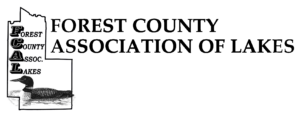Why do you need a land management plan?
They are the key to the successful management of your forest. Land management plans are long-term and provide continuity through generations of ownership. Make sure to go over your plan with family members that may be purchasing or inheriting the land in the future. If you don’t already have a land management plan in place, make sure to talk with your natural resource professional to set up a free on-site walk-through of your property and begin the process of creating your personalized land management plan!
Practice Plan: This is written to cover a very specific action that will happen on your land. An example is a tree planting plan, which can include goals, map of the area, site preparation, what species to order and how many, and any cost-share assistance that could be applied for.
Basic Plan: This kind of plan will outline general management practices for a property. It may be in letter form or a summary of management activities. This is most often received from a natural resource professional after an initial conversation about your goals and a walk through of the property.
Comprehensive Plan: These are the most detailed plans that incorporate sustainable forestry principles. One example is a Forest Stewardship Plan, which has 16 natural resource elements that can be addressed. The needs of this plan can be agreed upon between the landowner and a natural resource professional after a property walk-through and conversations about land objectives. Another example requiring a comprehensive plan is the Wisconsin Managed Forest Law (MFL) Program. This is a landowner incentive program that offers reduced property taxes when following sound forest management. A MFL plan is needed for the MFL Program application and must be written by a DNR certified plan writer.
Basic and comprehensive forest management plans should include these aspects:
- Property ownership & property description
- Statement about the landowner’s management goals & objectives
- Description of resource conditions & concerns
- Recommended management activities & schedule
- Maps (property, soils, etc.)
- Resources & information (publications, permits, professional assistance contracts)
If you are interested in a management plan for your woodlands, contact Steve Kircher, County Conservationist-Land Information/GIS Director at 715-478-1387 or by e-mail at .
Conservation Corner is a weekly article produced by the Forest County Land &Water Conservation Department. For more information contact Steve Kircher, County Conservationist-Land Information/GIS Director at 715-478-1387 or by e-mail at .
